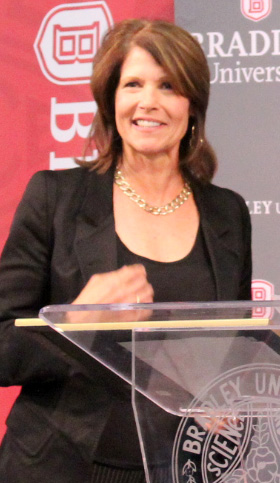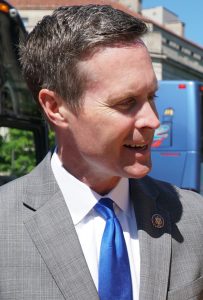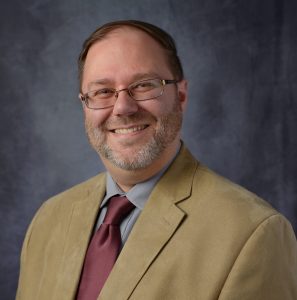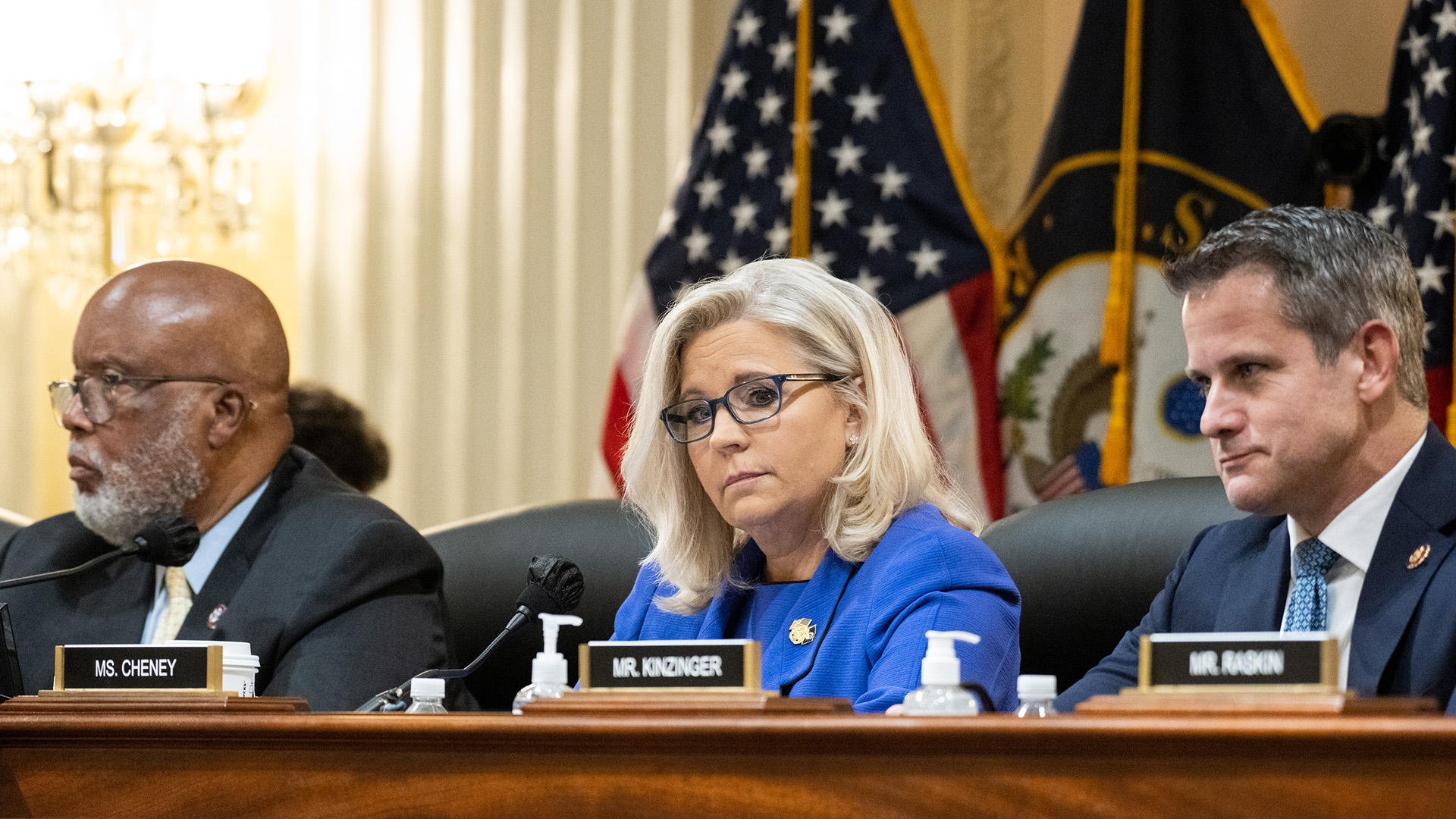Representatives Cheri Bustos, Adam Kinzinger and Rodney Davis have donated their papers to the research institution
Fifty years ago, official Washington, D.C. — Air Force One and all — came to Pekin for the ceremonial cornerstone-laying of the Everett McKinley Dirksen Congressional Research Center.

Over the ensuing half-century, the Center has grown into a facility with state-of-the-art archival space and added collections from Dirksen’s congressional successors in central Illinois, boasting records from U.S. Reps. Bob Michel and Ray LaHood. Researchers nationwide make use of the nonpartisan organization’s records, and it provides educational material about key moments in congressional history, like Dirksen’s role in the passage of the Civil Rights Act of 1964.
But a recent flurry of newly donated papers has proven history-making for the venerable research institution, while also offering a wider glimpse into the politics of the 21st century. Three members of Congress who retired in January each chose to donate their papers to the Dirksen Center: Reps. Cheri Bustos, Adam Kinzinger and Rodney Davis.
“To add one new collection is notable; three simultaneously is a landmark,” said Dirksen Center Executive Director Tiffany White. “It positions us as a go-to institution for the study of modern congressional activity, especially during such a turbulent period in government.”

The collections include members’ public papers from their time in office, everything from the bills they sponsored to notes from staff on national issues.
Bustos may be most familiar, having represented Peoria and Pekin as part of Illinois’ 17th Congressional District. Kinzinger grew up in McLean County and served in the Air Force before representing a wide swath of north-central Illinois.
He became something of a household name during hearings of the bipartisan commission examining the Jan. 6, 2021 attack on the Capitol. Davis, a longtime congressional aide, served nearby Bloomington-Normal and Springfield.
Bipartisan firsts
The addition of Bustos’ papers provides two Center firsts. She’s the first woman and first elected Democrat with papers in the collections. The legacy of the institution helped solidify her decision to donate her records, she said.
“The names of Everett Dirksen, Bob Michel and Ray LaHood mean a great deal to Illinois. To have my congressional papers even in the same vicinity as theirs is a complete … honor,” Bustos said. “And as someone who believes in the bottom of my heart and soul in bipartisanship, I’m glad to be a Democrat in the midst of Republicans. I’m glad to be a woman in the midst of men. And I’m glad to help … future generations of leaders, students and scholars learn about this snapshot of congressional history.”
The values Dirksen represented were key to Kinzinger’s decision to work with the Center.
“Senator Dirksen’s record shows the importance of building bipartisan consensus, and of putting your district’s interests above fleeting political interests. Those are lessons that helped guide me in office,” Kinzinger said. “In an era of extreme political polarization, we need more opportunity for people to learn how and why Congress works, and the Dirksen Center has spent 50 years doing just that.”
“Representing one of the biggest higher education districts in the country has taught me the importance of preserving records for scholarly study and for history,” Davis added.
Providing facts and context about Congress and the people who serve there is a key mission of the Center.
“With more papers, covering a longer period of time, we’re able to tell those stories better and shine light on ongoing themes,” White said. “Each of the new members in different ways represented the same bipartisan ethos as Everett Dirksen, Bob Michel and Ray LaHood.”
The collections themselves bring something new to the Center.
“Almost the entirety of our earlier collections is in paper form,” White said. “Now we get to enter a new frontier, with collections that are almost entirely what’s referred to as ‘born digital.’”
Prior collections were measured in linear feet, taking up whole shelves and stored in folders kept in special, acid-free boxes in the Center’s climate-controlled archive space. The new collections were delivered on hard drives and flash drives and contain not only documents from congressional offices and correspondence with constituents and government officials, but also a copy of the member’s website and postings on social media platforms like Facebook and Twitter.
An enriched perspective
That the collections come from roughly the same period of time — Kinzinger entered office in 2011, the others in 2013 — is important, White said.
“It ensures that researchers get a rich, multifaceted perspective on what happened in the halls of Congress during the last dozen years,” she said. “Different members, with different political leanings and different bases of support, will have entirely different perspectives on these major events. Together their papers will tell a richer, more complete story of what occurred.”
It’s not the first time for such overlap. The Dirksen collection, for instance, is supplemented by the concurrent service of Michel for a dozen years, and by the papers of congressional journalist Neil MacNeil. Issues that were addressed during Michel’s tenure continue as threads in LaHood’s collection.
The new documents will be indexed and processed over the next few years, and are expected to be accessible to researchers in 2028. They include:
- Perspectives on the Jan. 6, 2021, attack on the Capitol, particularly important because of Kinzinger’s role on the select committee investigating it and Davis’ role as ranking member of the Committee on House Administration dealing with Capitol security.
- Davis’ role during and after the June 14, 2017, shooting at the Congressional Baseball Game for Charity practice.
- Campaigns, with Bustos’ service overseeing the Democratic Congressional Campaign Committee in 2020 and her work addressing the electability of Democrats in districts won by President Donald Trump in 2016.
- Transportation and infrastructure legislation, informed by Davis’ and Bustos’ committee work.
- Agriculture legislation, from work by Davis and Bustos on multiple rounds of farm bill legislation.
“It’s important to academia that we’ve expanded our collection and our partnerships, and that, in turn, is beneficial to the Pekin-Peoria region’s reputation when it draws more researchers here,” White said.
Meanwhile, “between Illinois College, Bradley University, and even Illinois State University and Millikin University where Congressmen Kinzinger and Davis went to school, there’s an opportunity to talk about congressional leadership to an even wider audience.”





